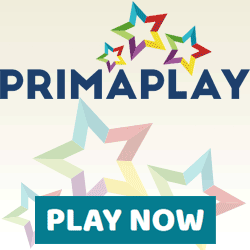Indiana Moves Closer to Legalizing Online Casinos and Lotteries
January 30, 2025 Marija D

The Indiana House Committee of Public Policy has approved House Bill 1432, taking a step toward legalizing online casino gaming and the state’s online lottery. The bill, introduced by Representative Ethan Manning, ed in the committee following a hearing that involved discussions among legislators, gambling operators, and tribal representatives. The measure now advances to the Ways and Means Committee.
Key Provisions of HB 1432
HB 1432 would authorize the Indiana Gaming Commission to oversee online casino gaming. Under the proposal, the state’s land-based casinos and racetracks could each apply for an iGaming license at an initial cost of $500,000. Each licensed entity would be permitted to operate up to three online casino skins. The bill also proposes an initial 26% tax rate on adjusted gross revenue, with a tiered tax structure set to follow in subsequent years.
Additionally, HB 1432 mandates the creation of the Indiana Responsible Gambling and Problem Gambling Services Program. The Indiana Gaming Commission would be responsible for allocating $500,000 annually to fund problem gambling initiatives, with the costs covered by gaming operators.
During the committee hearing, several amendments to HB 1432 were adopted. One amendment requires the state’s Alcohol and Tobacco Commission to train alcohol servers in gaming establishments. Another approved amendment revokes licenses from gaming entities operating in illegal markets.
Another major change concerns Indiana’s sports betting tax structure. The committee approved an amendment increasing the tax rate on online sports wagers from 9.5% to 20%, while retail sports betting will remain at the existing 9.5% rate. The current law applies the same 9.5% tax to both online and retail bets.
Furthermore, the bill was revised to allow tribal casinos to participate in Indiana’s iGaming market. A provision was added directing 2% of online lottery revenue to the Lottery Commission Fund, which will be used to compensate retailers promoting iGaming. The discussion also touched on the legality of electronic pull tabs, which were covered separately in House Bill 1433, a measure also ed during the committee session.
Tribal and Industry Divisions
The latest version of HB 1432 has gained from the Pokagon Gaming Authority, which operates a South Bend casino. General Counsel Paul Shagen emphasized that the updated bill meets the tribe’s primary objectives.
“The bill as amended will achieve the Pokagon Band’s primary goals,” Shagen stated. “First, it will allow the Pokagon Band to participate in iGaming on equal footing under a state license. Secondly, the bill s for the unique sovereign status of the Pokagon Band as a government and federally recognized tribe and reflects the relationship between Pokagon and Indiana.”
While the bill enjoys some , opponents include groups such as the Campaign for Fair Gambling. Certain casino operators, including representatives from Penn Entertainment and Churchill Downs Incorporated, expressed concerns over potential revenue losses from traditional casino gaming.
Concerns Over Market Cannibalization and Problem Gambling
Industry representatives debated whether online gaming would negatively impact revenue from brick-and-mortar casinos. Penn Entertainment and Churchill Downs aligned with other mid-sized casino operators that previously raised similar concerns in Maryland and Louisiana, warning that online casinos could pull revenue away from physical casino properties. However, opponents countered that both companies operate digital gaming platforms in other states.
Boyd Gaming took a different stance, endorsing HB 1432. The company has an online sports betting and casino partnership with FanDuel and indicated no significant concern regarding competition between land-based and digital gaming.
Advocates of problem gambling initiatives also voiced objections. Brianne Doura-Schawohl, speaking on behalf of the Campaign for Fairer Gambling, urged legislators to strengthen efforts to combat illegal online gaming rather than legalize new platforms. In response, proponents argued that the state’s regulatory structure could help curtail unlicensed gaming activity.
Fanatics Betting & Gaming’s head of government affairs, Brandt Iden, reinforced this perspective. “A regulated online industry provides the state with the necessary tools to enforce its laws against illegal operators like those that are operating in Indiana,” Iden stated. He referenced Michigan’s ability to shut down illegal offshore operators as a potential model.
Online Sports Betting Tax and Operator Pushback
One of the key amendments introduced by Rep. Manning proposes raising the online sports betting tax rate from 9.5% to 20%. Manning argued that the tax increase “shouldn’t impact the player experience,” but several operators have voiced concerns. Some companies ing the online casino bill have indicated a preference for adjusting the proposed tax increase through further legislative negotiations.
Beyond tax changes, another amendment prohibits companies engaged in illegal gambling from obtaining an Indiana gaming license. Additionally, Amendment 32 increases the share of online gaming tax revenue allocated to local governments and earmarks funds for Indiana’s fire pension program.
With HB 1432 now headed to the Ways and Means Committee, stakeholders remain engaged in shaping its final form. While ers are optimistic about its age in the House, securing Senate approval may present a greater challenge.
Source:
”Online Indiana lottery & gambling expansion clears first hurdle” Terre Haute Tribune-Star. January 28, 2025.















